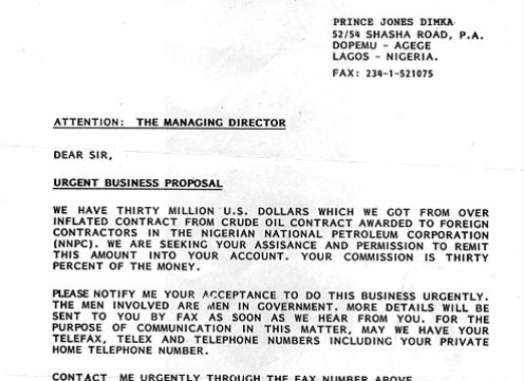

You know those completely implausible, unbelievably over-the-top scam emails spelling out some overwrought story about a deceased Nigerian prince, his massive fortune, and the lawyer (esquire, really) who needs your help to transfer the funds out of the country before they are seized by the government? One Microsoft researcher thinks these stories are unbelievable on purpose. Implausible stories drive away all but the most gullible recipients, he argues. The ones most susceptible to the scams self-select.
In a paper released yesterday titled “Why do Nigerian Scammers Say They are from Nigeria,” Microsoft researcher Cormac Herley puts forth the economic argument that there is an associated cost for each person a scammer decides to pursue. That cost is time and effort, and each potential target requires an investment. By overcooking their stories in the original email, these scammers immediately provoke some vast percentage of their recipients to hit the delete button. But the ones who don’t are the very kind of people who will likely buy the rest of the con hook, line, and sinker.
“A less outlandish wording that did not mention Nigeria would almost certainly gather more total responses and more viable responses, but would yield lower overall profit,” Herley writes. In other words, and without sugar-coating it: if you actually respond to one of these Nigerian scam emails, you’ve passed the “dumb test” and are ready to move on to the next step, which is where you surrender your personal information and perhaps even a bank account or social security number. Please don’t do this.
